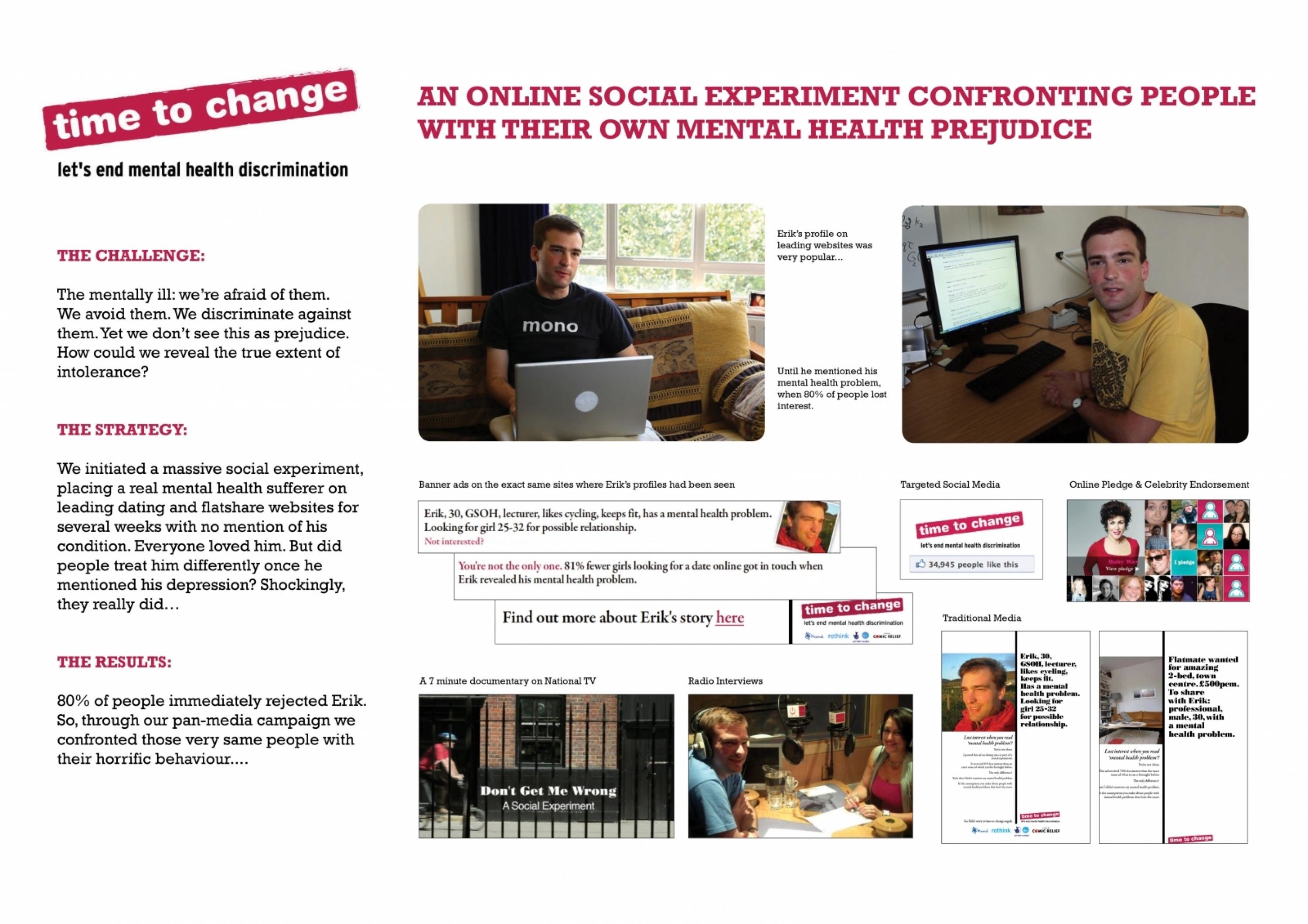Cannes Lions
Ask Twice
OGILVY, London / TIME TO CHANGE / 2019



Overview
Entries
Credits
Overview
Background
Mental health is a massive taboo for this group, exacerbating conversational difficulties. Yet ironically - despite avoiding discussions about emotions or mental health with everyone, a Brit asks “You alright?” to friends, family, colleagues, even strangers several times a day. Said anywhere else, this question would only be asked if a person looked upset or unwell – but in the UK, it’ s more common than ‘Hello.” There lay an opportunity, because the one question we needed them to ask their mate was already being asked.
British people are renowned for being stiff, emotionally constipated and completely unable to discuss or express their feelings. Equally, they’re self-deprecating; Brits sometimes deal with hardship or misfortune by making fun of it. Hence, humour became a perfect way to deal with the mental health taboo.
Idea
The strategy was central to the creative execution. It formed the CTA: Ask Twice
We know these men find conversations about mental health tricky. We ensured that we modelled a conversation about mental health which had a positive resolution, to show that it wasn’t a chat that they needed worry about. This clearly defines the expected behaviour, reducing the cognitive load a friend might be feeling on how to initiate a conversation about mental health.
It was also important to ward away any fear of mental health through humour. The answer lay in mate banter. Tapping into male ‘mate’ culture kept the films disruptive, yet relatable.
As mental health problems aren’t fully understood by the audience, we manifested the intangible concept of mental health in the physical form. The power of the analogy made the problem concrete and visible.
Strategy
Research consisted of a mix of nine smaller focus groups and larger two hall tests, engaging over 90 people in total.
We observed that these men could identify when a friend was acting differently, and they would do absolutely anything to help them. Yet, they struggled to understand how help their friend open about their mental health. They didn’t know how to start these vital conversations. We needed to show them what a realistic mental health conversation looks like.
We found out that 78% of the British population falsely say ‘I’m fine’ when someone asks ‘how are you?’
We realised that we needed to devise a tool to get someone to answer this question honestly. We needed it to become a new social norm.
This was our breakthrough moment. It showed that we didn’t need any more awareness communications. We needed something that would inspire someone to act. We decided to devise a piece of language to help men step in for a friend.
The clear winner in these groups was ‘Ask Twice’. The message encourages those to ask their friends how they are twice, to break beyond response of ’I’m fine’ the first time around.
Execution
A hiker takes a deep breath and enjoys the beautiful outdoors. He then realizes that his mate is completely wiped out under a huge tree behind him. He asks if his mate’s alright, and his mate assures him that he is. He then thinks to himself and wonders if his answer was genuine. A talking squirrel then explains that often times people say they’re fine when they’re actually not, and because 1 in 4 of us will experience a mental health problem, to really know if your mate’s alright you should ask twice.
The hiker then turns over his shoulder and asks, ‘Are you sure you’re alright?’ and his friend admits he might need some help.
Outcome
Our budget sat at £630K. It achieved a campaign recognition of 35%, which equates to £0.30 per recognition. This was particularly impressive given that the campaign did not live on TV. The clearer call to action paid off: there was a 10% increase in people saying they would check in with a mate who might be struggling, taking the cost per action down to £1.15.
Our film was retweeted 2.4k times, with celebrities like Simon Pegg and Alistair Campbell joining in the conversation.
Our results demonstrate the powerful impact of a campaign which doesn’t shock or outrage.
Rather, through providing these men with a piece of language to use in tricky conversations, we have unlocked an underrepresented and vulnerable part of society, inspiring life-saving behaviour change in 547,000 people. That’s like filling Wembley stadium five and a half times over.
Similar Campaigns
12 items

